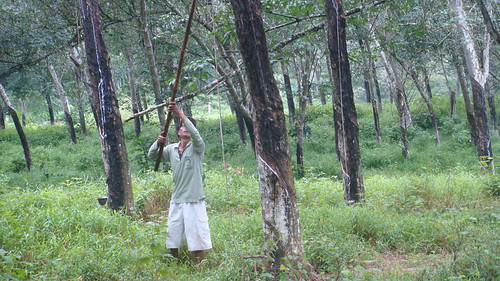Pi'il is one of the first Lampungese words that I learnt. It means Pride, and it's a huge thing in the culture. And also kinda confusing concept for me.
I was told that Lampungese women are great, if not the best, because they put up with everything in a marriage. The man can cheat, beat them up, unemployed, but the woman would not divorced him. It's down to pi'il. Apparently if a couple split up, the whole clans would not talk to one or the other.
I happen to come to contact to one Lampungese that drive me nuts. This unemployed guy, named Mustafa, is 'helping' us with a project. I dont really know exactly how, but that's another story. Anyway, he sulks with every single thing. I thing he has constant PMS. He calls or texts every two days asking for this and that. So about two days ago he called asking for cell credit around 7 PM while we were having a big meeting in Jakarta. Two hours passed, and the meeting still going on, he called asking where's the credit, in not so polite way. I told him politely that we are still in the middle of a meeting, that transfering from my cell wont work due to server problem, so I need to go out and get a voucher later. The meeting ended at 11:15 PM. We were all dead tired since we started our day at 5 AM in Lampung, travelled by land and sea and as soon as we reached Jakarta we had that meeting. On our way home Mustafa called again angry that he still had no credit.
The next day he texted complaining about we make him ashame because he promised his people that he will give them cell credit. I texted him back, asking his people's numbers so I can transfer it directly. He replied he still has about 100k from us that he's going to use, no need to send the credit, but not giving his people's numbers. So, I didnt send him any credit.
The next day he called early in the morning 3 times after each other when I didnt pick it up. Then he texted our driver asking if I want to send him credit or not. I finally sent him some in the afternoon.
That's ladies and gentlemen is an example of Pi'il, he wanted that credit for himself, he just use his people for an excuse.
But there's this phenomena that I do not get.
Lampungese is rather be unemployed than working as a buruh tani (working for someone else's land). I heard (from a Lampungese), that they rather steal (cow & motorcycle are favorite targets). I found it strange that someone with such huge pride would rather steal than work. I was told it's because working for someone else is like being a slave, while stealing is showing others that he is the man.



